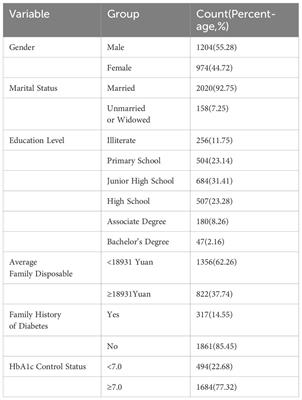The relationship between health literacy and blood sugar control in rural areas among diabetes patients

Background: Although the relationship between health literacy and glycemic control has been explored in patients with diabetes, little is known about the relationship between different categories of diabetes health literacy and glycemic control in rural areas.
Therefore, this study focused on the relationship between different categories of health literacy and glycemic control among diabetic patients in rural areas of Guangxi, China.Objective: To explore the potential profiles of health literacy among rural diabetes patients in Guangxi and investigate their relationship with blood sugar control.Methods: A health literacy questionnaire was administered to 2280 rural diabetes patients in five cities in the Guangxi Zhuang Autonomous Region. Latent profile analysis was conducted to identify potential health literacy profiles.Results: Health literacy among rural diabetes patients in Guangxi could be categorized into high literacy-high functionality and low literacy-low criticality groups.
The latent categories of health literacy were associated with blood sugar control, with diabetes patients in the high literacy-high functionality group demonstrating better blood sugar control than those in the low literacy-low criticality group (P < 0.05).Health literacy among rural diabetes patients in Guangxi exhibits heterogeneity. Healthcare professionals should pay attention to patients with low literacy and low criticality in rural areas and develop interventions to enhance their health literacy, thereby improving their blood sugar control.
Read the full article at the original website
References:
